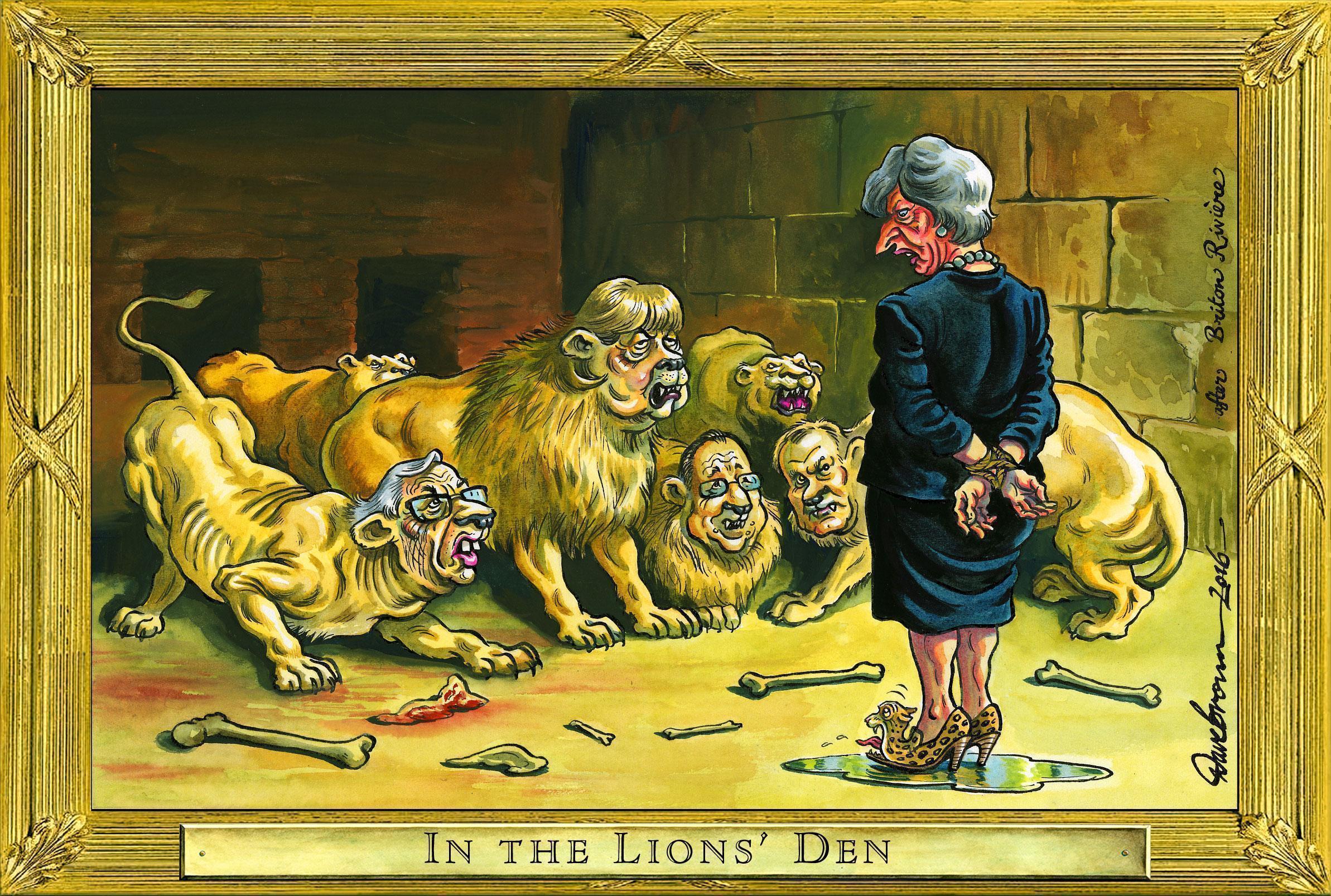May made an impossible demand on the EU
The UK wants to continue to pay a full role in the EU, which it is entitled to, and would be fine if it were to be positive; but vetoing any number of federalist moves, for example on defence co-operation, seems in bad taste for a departing member of the club

The Prime Minister tells us that she is “optimistic” about Britain’s future relationship with the European Union. Just as well, because her positive outlook is not widely shared outside the ranks of British eurosceptics. Theresa May, in true EU summit style, was given five minutes at one in the morning to state her case. By all accounts she made a good fist of it – late night homework obviously holds no horrors for her – but she was greeted with perfect silence. Then the leaders of the European Union moved on to other matters.
It is either supremely impressive or deeply depressing that the EU’s presidents, prime ministers and chancellors had bigger fish to fry than the departure of the second or third largest economy in the bloc. Many of them remain in denial about it, refusing to believe that the British really will walk out. Others have long since given up on the British making a constructive contribution and are resigned to making the best of things, with no great hope of success. A few actually welcome Britain's departure, so that they can continue to build the “ever closer union” they always promised themselves (if not always their electorates). Whether the sang-froid displayed at the conference dinner table was down to a serene belief in Europe’s united destiny, or merely not knowing what to say remains a puzzle.
It is true that British exit could easily be more than two years away, while the EU faces some much more urgent challenges. The crisis in Syria and Iraq, which has done so much to increase migration and destabilise the EU itself, is something that cannot wait until 1am to decide about, though the EU remains a bit-part player in a drama that is much more determined by the interests of the Americans and the Russians. The much delayed Canadian free trade deal, CETA, was also pressing. It was encouraging that Europe wants to act on these matters; but much less impressive in the lack of action agreed upon. It seems that the world’s largest economic group cannot even manage to conclude a trade agreement with a friendly, and rather smaller power, Canada, because of the opposition of one region of federal Belgium. Perversely, all that does is to prove the point the British Eurosceptics make that an “independent” UK with fewer such fissiparous interest groups would find trade deals easier to sign. We shall soon see.
This summit, then leaves the EU and the UK much as it found them. The UK wants to continue to pay a full role in the EU, which it is entitled to, and would be fine if it were to be positive; but vetoing any number of federalist moves, for example on defence co-operation, seems in bad taste for a departing member of the club. The British could probably exercise a little more discretion about things that won’t affect them beyond 2019, and win some much-needed goodwill in the process.
Once again Ms May made her impossible demand on her partners – a deal for the UK that permits free trade in goods and services, but where immigration controls will be a fact of life. As has been clear for a long time, it is simply not possible for Europe to grant the UK such special status, because it would mean the disintegration of the entire grouping, such is the attractiveness of that to the voters in so many of the nation states. Once again the European leaders responded with varying degrees of politeness. The German chancellor, Angela Merkel, is the most practical and constructive, as would be expected. The European Commission, in the form of President Jean-Claude Juncker, chants the line that Brexit means hard Brexit. The fundamental demands of the UK, though, of wanting free movement of capital, goods and services without free movement of people, remains as unacceptable and elusive as ever. If they’re still talking about this in two years’ time, then the British will endure the hardest of hard Brexits. In which case we will all need to be optimistic.

Join our commenting forum
Join thought-provoking conversations, follow other Independent readers and see their replies